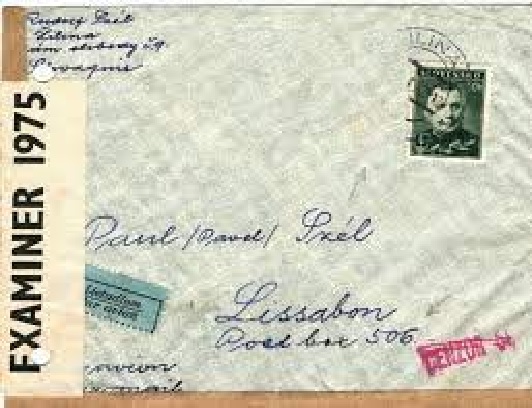
The bankruptcy of Thomas Cook & Son Ltd. reminds us of one of their ventures during World War II. During the war, postal service between warring nations was suspended, but the British government was willing to allow families to remain in touch with relatives in Germany or occupied countries. Therefore, they allowed Thomas Cook to provide an “undercover mail” service via neutral Lisbon.
Writers in Britain would write their letter and place it in an unsealed envelope addressed to the eventual recipient. The letter would instruct the recipient to reply to the sender’s full name, care of Post Office Box 506, Lisbon, Portugal.
This envelope was placed in an outer envelope along with a money order for 2 shillings, along with a note of the sender’s full name and address. This was all sent to Thos. Cook & Son Ltd., Berkley Street, Piccadilly, London.
Letters were subject to censorship, and subject to numerous rules. They were to be clearly written without erasures, and could not exceed two sides of a normal sheet of notepaper. The sender’s address was not to be used in the letter or envelope and were to refer only to matters of personal interest. There was to be no reference to any town (other than Lisbon), village, locality, ship, or journey. There was to be mo mention of the fact that the writer was not in Portugal.
Box 506 was the most famous of these addresses, although there were others at various times during the war. Prior to the U.S. entry into the war, undercover addresses in New York were used by Canadians and aliens stuck in Canada to correspond with Germany and occupied countries.
References:
- Rudolf Hess: A New Technical Analysis of the Hess Flight, May 1941
- Undercover Addresses of World War II
